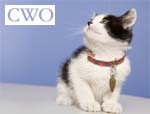A few months ago I joined a couple of email ‘lists’ which provide questions, answers, queries, by people all over the world who are interested in genealogy in similar geographical areas to me. For example, I may be researching a long lost relative with the surname ‘Blogs’ who lived in the mid 1800’s in Blogland. I may send a query to the ‘list’ about the possibility of Blogs marrying say ‘Webb’ (fictitious name in this case) in 1856 and asking one of the listers to do a ‘look-up’ for me to see if this was recorded somewhere in the genealogical records of the past which they have access to. It really is a great way of not only gaining information but also of ‘meeting’ a great bunch of people who have wonderful memories and resources which they are very willing to share.
Now that I look back on it, it was a spur of the moment thing – but I offered my services to help with transcribing some areas of the 1871 census. I had in the past transcribed some old New Zealand newspaper listings and found it relatively uncomplicated so thought I’d probably be able to manage the census transcript OK.
What has happened in the process of transcription though, is not just straightforward typing, but an endless fascination and contemplation of the lives of those who lived in 1871 in a particular street and a particular house. Where did they all fit? Many families with large numbers of children, all living at one address. Occupations such as seed sifter, relic stamper, envelope folder, feather hand, boot closer, to name only a few, push my mind into overdrive trying to imagine aspects of their lives which I’ll never be able to relate to. So many of them, young in years to our way of thinking, whose wife or husband had died, leaving them with many children to raise, in conditions we couldn’t imagine in our time of material comforts. Huge numbers of kids who never went to school, and even larger numbers of 10, 11 year olds out working, presumably to help the family keep their heads above the financial high water line.
My part in transcribing their information is minute - but recording some of their history is an important step to making sure they are never forgotten. We may only know them as names on a piece of paper, but no matter who they were, what their story was, or where they came from, they have been part of history that has in some small way, brought me to where I am today. To them then, I am grateful!
Now that I look back on it, it was a spur of the moment thing – but I offered my services to help with transcribing some areas of the 1871 census. I had in the past transcribed some old New Zealand newspaper listings and found it relatively uncomplicated so thought I’d probably be able to manage the census transcript OK.
What has happened in the process of transcription though, is not just straightforward typing, but an endless fascination and contemplation of the lives of those who lived in 1871 in a particular street and a particular house. Where did they all fit? Many families with large numbers of children, all living at one address. Occupations such as seed sifter, relic stamper, envelope folder, feather hand, boot closer, to name only a few, push my mind into overdrive trying to imagine aspects of their lives which I’ll never be able to relate to. So many of them, young in years to our way of thinking, whose wife or husband had died, leaving them with many children to raise, in conditions we couldn’t imagine in our time of material comforts. Huge numbers of kids who never went to school, and even larger numbers of 10, 11 year olds out working, presumably to help the family keep their heads above the financial high water line.
My part in transcribing their information is minute - but recording some of their history is an important step to making sure they are never forgotten. We may only know them as names on a piece of paper, but no matter who they were, what their story was, or where they came from, they have been part of history that has in some small way, brought me to where I am today. To them then, I am grateful!
















